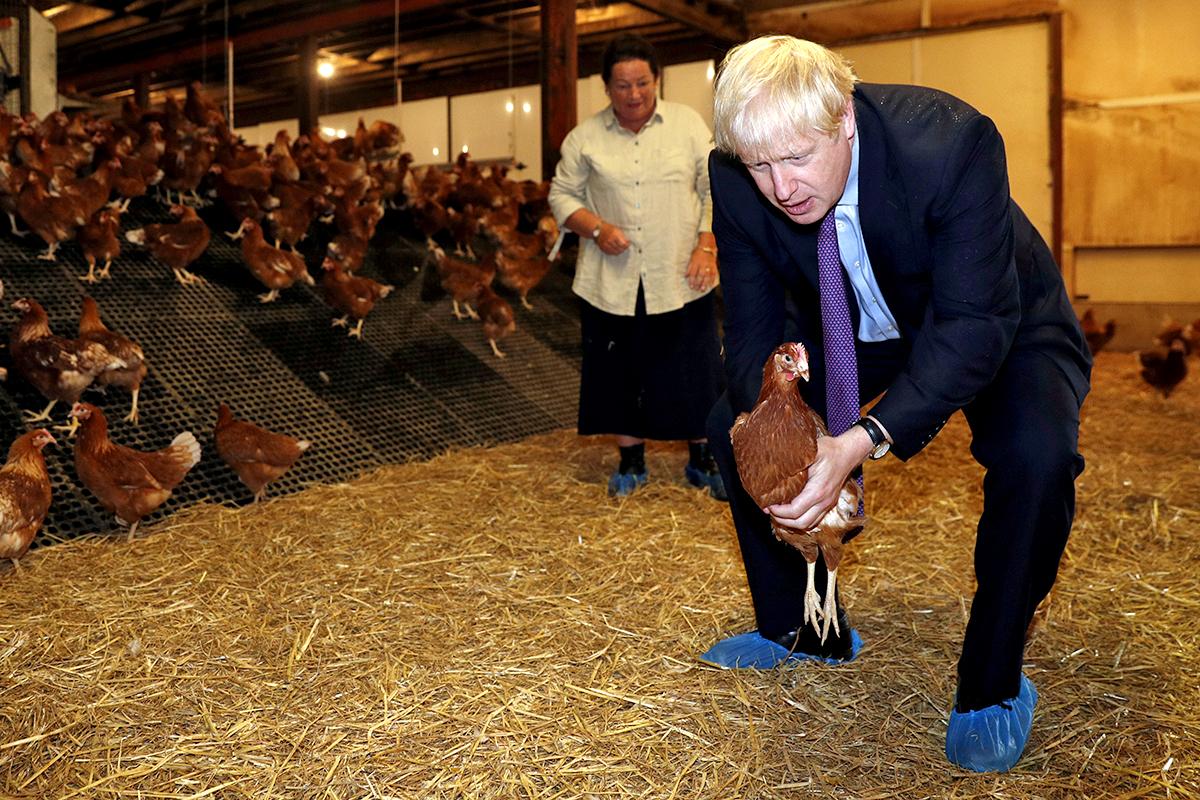What would no-deal Brexit mean for UK farmers?
Analysis: EU subsidies account for half of the average farmer’s income and many would lose money without them

Boris Johnson looked his bumbling old self as he wandered around the Welsh countryside trying to convince farmers a push for hard Brexit wouldn’t hurt their business.
He clutched a chicken and promised to “back Britain’s great farmers”, giving them the support they need after Britain leaves the EU.
However, his plans for a no-deal Brexit are widely considered to be catastrophic for the industry and few farmers would have found comfort in his comments yesterday.
Wales exports more to the EU than any other UK region in percentage terms and much of that comes from the agricultural sector. Rural Wales is likely to be hit particularly hard with sheep prices expected to fall by more than 30 per cent in the event of a no deal.
British farmers have been relying on EU subsidies since 1972. Distributed by the Common Agricultural Policy (CAP), farming subsidies account for more than a third of the EU’s total budget.
They account for half of the average farmer’s income and mean the difference between many farmers losing money or making a small profit. Between 2014 and 2017, 42 per cent of farmers would have lost money if they had not received them.
After leaving the EU these payments will disappear. However, it’s not clear what will replace them and how UK farmers will be able to stay afloat.

Farmers plan years in advance so it is an industry that needs “cast-iron commitments” more than anyone else.
With Johnson promising the UK will leave on 31 October, come what may, the future of Britain’s farming looks more uncertain than ever.
For example, Wales exports nearly 40 per cent of its lamb to the EU.
If no plans are made before the UK leaves, Halloween could be truly bloody for Welsh farmers, with some concerned the only option is mass slaughter of livestock.
The future of British farming has come to a crossroads: when Michael Gove was environment secretary, farmers were told current subsidies would continue to provide money like their EU counterparts until 2022. After then those who provided “public goods” such as planting meadows and hedgerows would receive payments.
However, the other road looks like Britain could join a regulatory race to the bottom, opening its doors to meat products from animals with low-welfare standards, as epitomised by the threat of chlorinated chicken from the US.
Farmers urgently need clarity about what Brexit – deal or no deal – really means.
Join our commenting forum
Join thought-provoking conversations, follow other Independent readers and see their replies
Comments
Bookmark popover
Removed from bookmarks